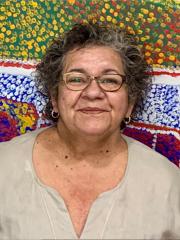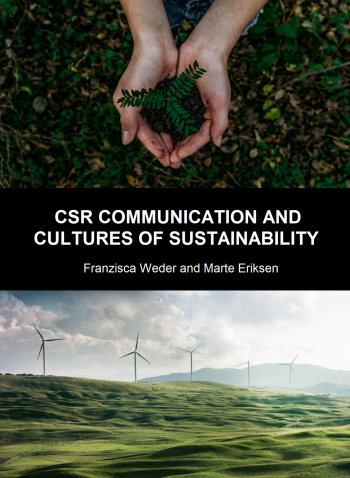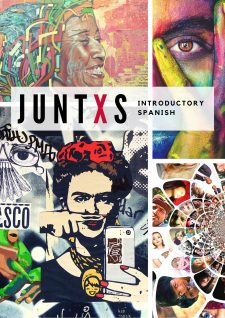To celebrate International Open Access Week 2023, we are sharing information about our Open Textbooks Program and its benefits to UQ students, teachers, and the community.
International Open Access Week (23–29 October) invites you to learn more about the benefits of Open Access. The theme for 2023 is “Community over Commercialization”.
Benefits of open textbooks at UQ
Through the Open Textbooks at UQ program, we partner with UQ academics and teaching staff to create and adapt open textbooks using the Pressbooks platform. The books are freely available to students and the wider community.
The program, which began in 2021, also provides grant funding to UQ authors to support this work.
Combatting cost-of-living-pressures
At a time of increased cost-of-living pressures, free Open Access materials help ensure that students have equitable access to their learning resources.
"Education (and academic success) should not be hidden behind paywalls …” (Undergraduate enrolled in Business)
Making online learning resources freely available to Queensland students and community members supports the University’s Queensland Commitment to remove barriers to Queensland students aspiring to study at UQ by 2032.
Read Textbooks today: The case for open online textbooks for more about UQ student experiences with textbooks.
Better student experience
Open textbooks improve the student experience in a variety of ways. They are not subject to digital rights management and can be accessed in different formats, downloaded, and printed freely. They are more accessible and flexible to use than some commercial textbooks.
“I don’t have to stress about purchasing, and it is more accessible… It is way more engaging and makes learning easy!” (Undergraduate enrolled in Business)
Open textbooks have an important role to play in achieving the United Nation’s Sustainable Development Goals through supporting inclusivity, equitable access to quality education, and lifelong learning.
Incorporating diverse perspectives
Open textbooks can be adapted to incorporate diverse perspectives, including Aboriginal and Torres Strait Island perspectives and Australian content.

Dr Adriana Díaz, author of two Spanish textbooks JUNTXS Introductory Spanish and +JUNTXS Intermediate Spanish highlighted the importance of diversity, inclusion, and belonging in learning materials.
“In the evolving landscape of academic publishing, Open Educational Resources (OERs) have emerged as a radical catalyst for change.
These open-access, adaptable, and shareable materials challenge traditional gatekeeping, decentralizing the flow of knowledge. From a critical, decolonial and intersectional perspective, one of the most profound merits of OERs is their potential to decentralize predominantly Western-centric, epistemological hierarchies.
Conventional educational materials often marginalize the diverse voices and lived experiences of women, people of colour, and other historically oppressed groups. OERs empower educators to (re)imagine, (co)create and adapt educational content in order to craft a situated curriculum that values and foregrounds intersectional identities and narratives.” Dr Diaz said.

Professor Bunda, author of The Language of Relationships with Aboriginal and Torres Strait Islander Peoples, said that open textbooks could be used to bring Aboriginal and Torres Strait Islander perspectives into the curriculum.
“I am so pleased that PressBooks are now available through the Library. PressBooks allow us to compile our knowledge in one space and include support materials such as videos images and links, which just makes the text more vibrant and then as a result makes it more attractive for our students to learn.
The other great advantage of Pressbooks is we can update whenever we want” Professor Bunda said.
Easy to share and adapt
Because open textbooks use a Creative Commons licence, they are easy to share and adapt without breaching copyright.
For example, Legal Research Skills: An Australian Law Guide, a textbook published in May 2023, involved multiple Queensland universities collaborating to adapt existing content.
“This project illustrates how easy it is to adapt existing open licensed content and repackage it as an open textbook. The open textbook model provides academics with a legal and efficient way to repurpose content, meaning they don’t have to recreate the wheel” said Thomas Palmer, Manager of Digital Learning at the Library.
Read more about the creation of Legal Research Skills.
Browse our titles
Get a feel for how your open textbook could look and feel. Check out these featured titles or browse the Open Textbooks at UQ Catalogue.
Find more open textbooks
The Open Educational Resources (OER) - Textbook collection includes both open textbooks created by UQ staff and students on the Open Textbooks @ UQ platform, and open textbooks available through collections such as OpenStax College and the Open Textbook Library.
Try the OER textbook Advanced Search to target your search.
Our OER guide lists other open textbook collections and a selection of recently published open textbooks by subject:
Learn more about creating an open textbook
Register to attend an Open Textbook @ UQ grant information session (UQ login required).
- Date and time: Wednesday 22 November from 10am
- Venue: online via Zoom
You can also email us at pressbooks@library.uq.edu.au or submit an expression of interest.

